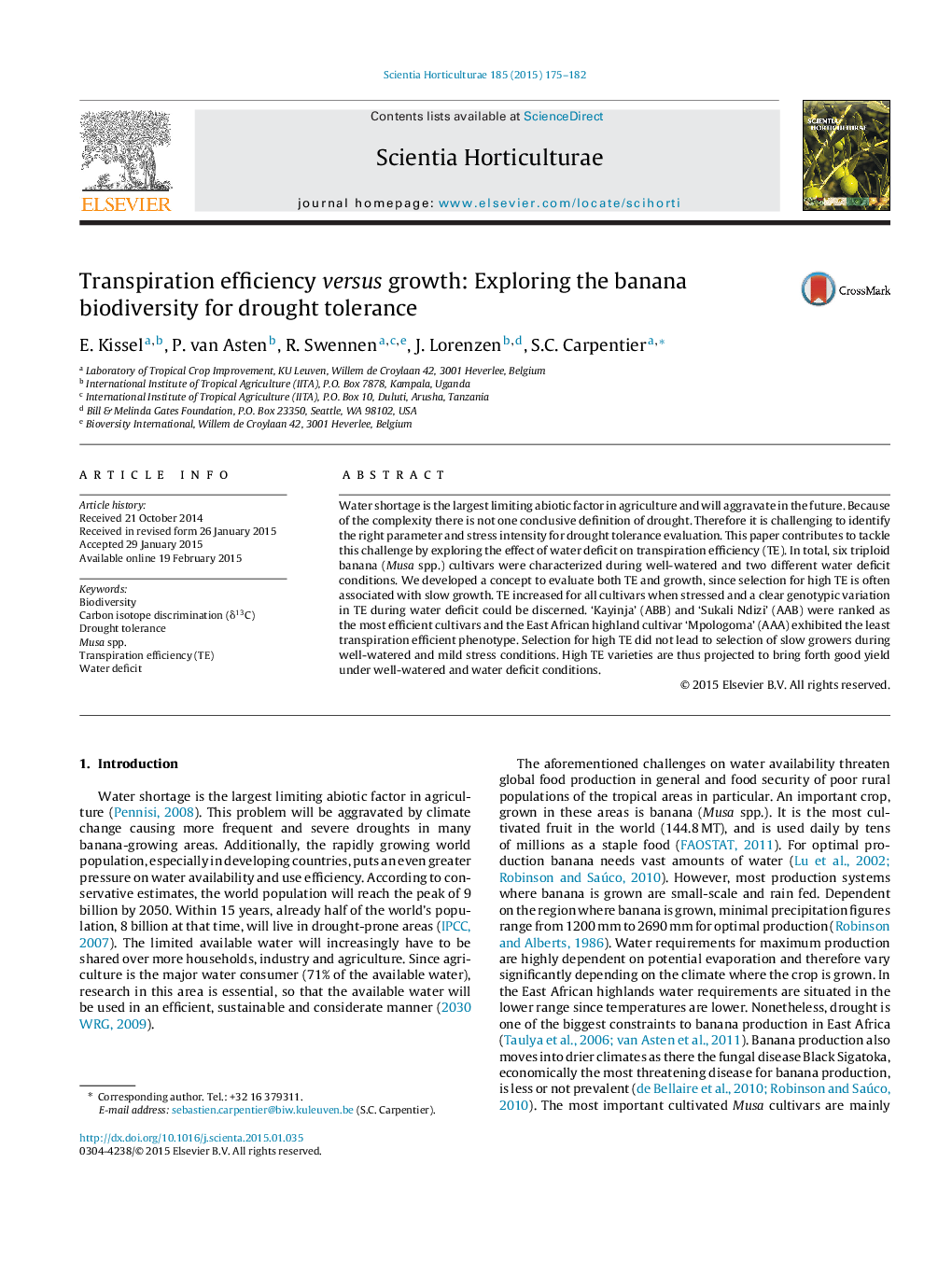| کد مقاله | کد نشریه | سال انتشار | مقاله انگلیسی | نسخه تمام متن |
|---|---|---|---|---|
| 4566508 | 1628813 | 2015 | 8 صفحه PDF | دانلود رایگان |
• A workflow is developed to screen for drought tolerance based on TE and growth.
• C discrimination is not a suitable proxy for genotype × treatment interaction.
• Six Musa cultivars are evaluated for drought tolerance using TE and growth.
• ‘Kayinja’ (ABB) and ‘Sukali Ndizi’ (AAB) showed the highest TE.
Water shortage is the largest limiting abiotic factor in agriculture and will aggravate in the future. Because of the complexity there is not one conclusive definition of drought. Therefore it is challenging to identify the right parameter and stress intensity for drought tolerance evaluation. This paper contributes to tackle this challenge by exploring the effect of water deficit on transpiration efficiency (TE). In total, six triploid banana (Musa spp.) cultivars were characterized during well-watered and two different water deficit conditions. We developed a concept to evaluate both TE and growth, since selection for high TE is often associated with slow growth. TE increased for all cultivars when stressed and a clear genotypic variation in TE during water deficit could be discerned. ‘Kayinja’ (ABB) and ‘Sukali Ndizi’ (AAB) were ranked as the most efficient cultivars and the East African highland cultivar ‘Mpologoma’ (AAA) exhibited the least transpiration efficient phenotype. Selection for high TE did not lead to selection of slow growers during well-watered and mild stress conditions. High TE varieties are thus projected to bring forth good yield under well-watered and water deficit conditions.
Journal: Scientia Horticulturae - Volume 185, 30 March 2015, Pages 175–182
